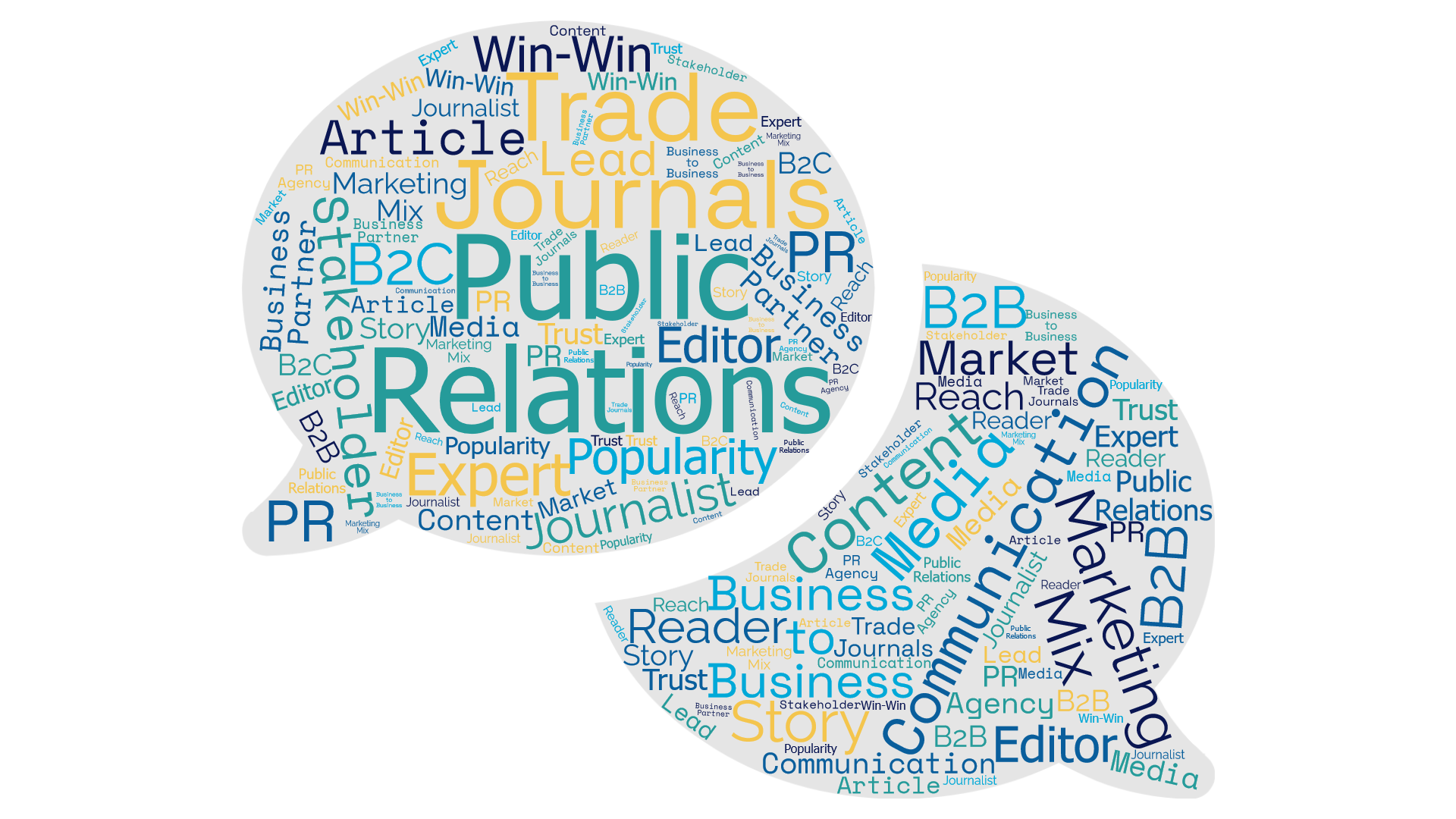Reports such as the 2017 Arte documentary about Edward Bernays, one of the forefathers of modern public relations, inevitably associate PR with manipulative techniques. It is hardly surprising, as this way of shaping public opinion first emerged in the context of political propaganda in the early 20th century. Since then, PR has become an extremely versatile communication tool that is used by public authorities and government agencies as well as public and private organizations, all the way to traditional product and corporate communication for small and medium-sized enterprises (SMEs) as well as large corporations.
But PR is not just PR. The respective target groups to be addressed determine the specific form it takes. In corporate communications, we differentiate between “business-to-customer PR” (B2C PR) and “business-to-business PR” (B2B PR). It is the communication strategy that distinguishes these two types: we have to carefully adapt it to the level of knowledge and specific needs of the respective target groups. Whereas consumers generally do not possess industry-specific expertise, potential business partners are all the more interested in expert, application-specific and cost-relevant information. This article discusses whether B2B PR is “just manipulation” and how everyone involved can benefit from it.
How does B2B PR work?
In the business-to-business sector, Public Relations is the way to go if you want to improve your brand visibility, your corporate reputation and/or your relations with your stakeholders. The basic principles of B2B PR are the same as any other form of PR: it is about building a positive awareness and communication of a product or company towards the public.
A well-planned approach to B2B PR is an invaluable tool to strengthen your business relations and set yourself apart from the competition. Not only will you generate valuable leads, but you will also boost your customers’ loyalty and your overall brand awareness. This ultimately results in personal recommendations and a long-term stable customer base.
B2B PR utilizes various different formats to convey your message: in addition to press releases, key tools include your own corporate website, public events and social media channels. Press releases are a more traditional, but by no means outdated way of communicating a company’s views and expertise. Yet, unlike in-house communication channels of which you are in full control, press releases first need to convince the editors of the target media.
How do independent trade media benefit from PR?
Why on earth would media editors participate in this exercise and “waste” their valuable editorial content on “free advertising” for companies? The answer is quite simple:
PR is not advertising. There is a reason why advertising is usually paid for: in most cases, it is intended to sell a product or service and, to this end, assumes a clear and one-sided perspective. In contrast, PR engages in dialog with the public and aims to convey authentic and, above all, informative content.
The primary goal of B2B PR is not to sell, but to direct the public perception of a company in order to establish its long-term positioning as a relevant player within the industry. Regardless of its origin, the information spread must therefore provide added value and market relevance. Only then will specialist and trade magazines that want to offer their target group the latest news directly from within the industry actually benefit – which leads to the second point:
PR is not free. Not paying for something with money does not automatically make it free. If you provide the media with press releases about your company, you are in fact engaging in a very lucrative barter: you increase your company’s profile in exchange for relevant information for the readers of that particular magazine. For the latter, this pays off in long-term stable or even growing numbers of subscriptions.
Trade journalists are constantly hunting for interesting content that is relevant to their respective target group. In doing so, editors like to contact their source directly. In B2B PR, these sources usually are companies. A consistent and reliable flow of information is what enables trade journals to report on the latest trends, innovations and opinions in their industry. In addition, profound B2B PR helps media editors to find experts, sources our interview partners for their stories. So, do not be surprised if journalists contact you personally after receiving your press release!
Why include B2B PR into my Marketing Mix?
People tend to perceive well-placed PR as more credible and interesting than traditional advertising. After all, the information is not conveyed subjectively by the company itself, but by an impartial editorial team. In addition, the content is not labeled as “advertisement” when published. Instead, it is placed in the editorial section of the trade journals – a seemingly subtle feature that is, however, decisive for how the readers receive the information.
After all, editorial contributions are generally known to be bound by journalistic principles, including truthfulness, accuracy and the strict separation of advertising and editorial work. The more relevant the trade press is to the industry, the more trust readers place in the editors only publishing stories that they themselves have researched in detail and assessed as relevant and fact-based. That is what good B2B PR is all about.
How to turn my B2B PR into a win-win scenario
By combining strategic corporate communications with industry-relevant trade journalism, B2B PR helps you raise awareness of your brand among your target groups. In exchange for targeted and consistent communication with media editors, they will offer you the opportunity to establish yourself as an expert, innovator or leader in your industry. By thus contributing to the public discourse, you will stand out from your competitors and be remembered by (potential) customers and business partners in the long term.
Are you curious about how you can use PR in your company? Maybe you are still undecided as to whether your topics can even be communicated successfully through press releases? Let us help you with these questions! Book a free consultation right away – and let us find out together how we can promote your company in the media.



